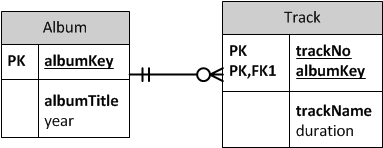Non-Identifying vs. Indentifying Relationships
Within an entity relationship diagram (ERD), what is the difference between a relationship that is drawn as a dashed line and one that is drawn as a solid line?
Legend
Before answering the question, here is a legend for the various parts of a simple entity relationship diagram (ERD). Knowing the names of these parts as shown in the legend will help you understand the answer to the question.
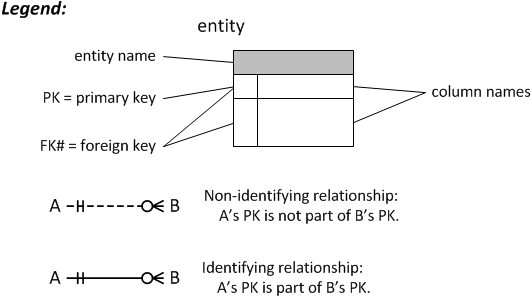
Non-Identifying Relationship (Dashed Line)
A relationship with a dashed line (such as
)
is called a non-identifying relationship, and the primary key of one
entity is not part of the primary key of another entity.
Identifying Relationship (Solid Line)
A relationship with a solid line (such as
)
is called an identifying relationship, and the primary key of one entity
is part of the primary key of another entity.
Example 1
Notice in the next diagram that all the relationships among the tables are non-identifying (dashed lines). This means that all foreign keys are just plain foreign keys and not part of the primary key in the foreign table.
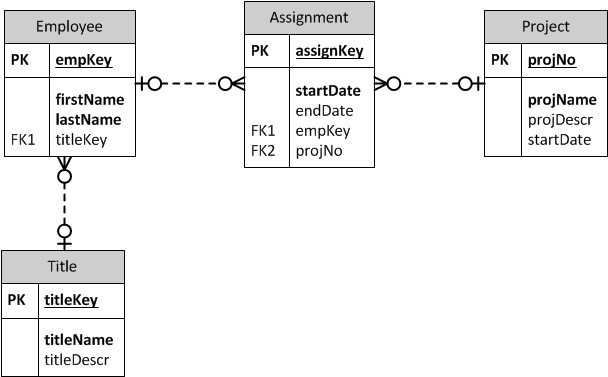
Example 2
Notice in the next diagram that the relationship between Job and Employee is a non-identifying relationship (dashed line) which means the primary key of Job is not part of the primary key of Employee. However, the relationship between Employee and assignment is an identifying relationship (solid line) which means the primary key of Employee is part of the primary key of Assignment.
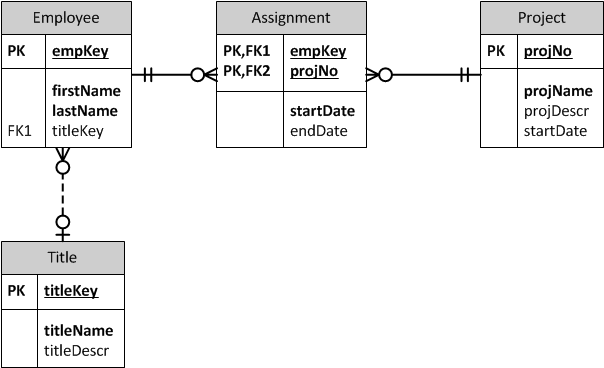
Example 3
Notice in the following diagram that the relationship between Album and Track is a non-identifying relationship (dashed line). This means the primary key for Album is not part of the primary key for Track.
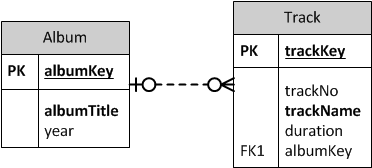
Example 4
In the next diagram notice that the relationship between Album and Track is an identifying relationship (solid line). This means the primary key for Album is part of the primary key for Track.
